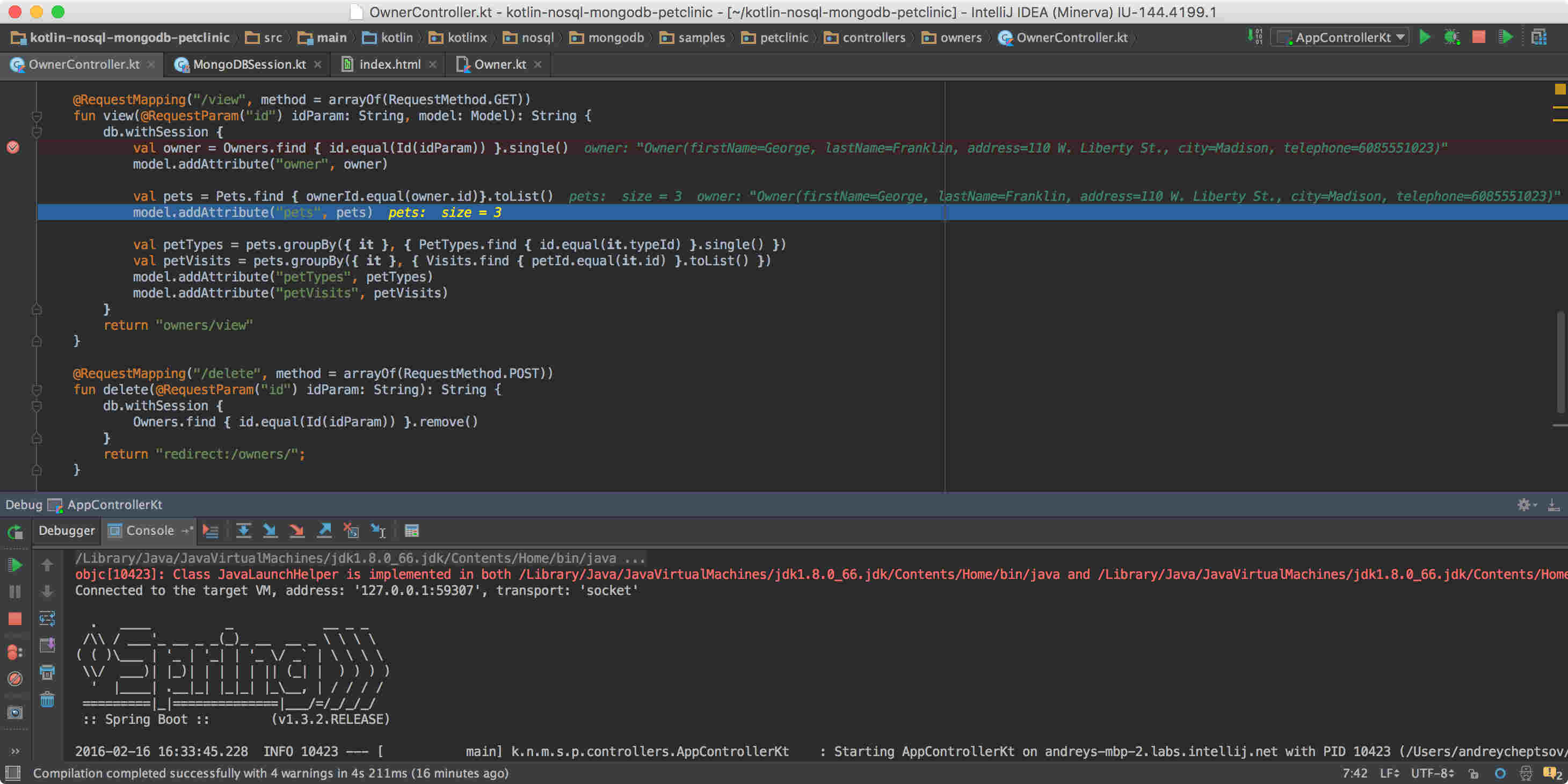| IntelliJ IDEA Updated |
| Thursday, 24 March 2016 | |||
|
JetBrains has released IntelliJ IDEA 2016.1, the first of a series of releases planned for this year for the Java IDE for web, desktop and mobile development. The new version has improvements to the debugger, where you can now enter Groovy expressions when debugging Java code. The developers say that this may be convenient because of the compactness of Groovy, especially when working with collections.
Another improvement means that if the current thread is blocked by another suspended thread, the IDE will suggest resuming it. In previous versions, Resume used to resume all suspended threads. You can now change this so that only the current thread is resumed. The final change to the debugger means that if the IDE notices that the source code is different from that being executed, it warns you to help prevent time waste or errors. VCS support has been improved with the addition of support for git worktrees. These were introduced in Git 2.5 to simplify working with multiple revisions of a single repository. Instead of making a repository clone you can create a lightweight worktree, and now IntelliJ IDEA lets you work with those worktrees just like you do with regular repositories. Support has also been added to let you rebase and checkout branches in a single action, and you can now make use of word-by-word difference highlighting when merging or comparing revisions. The code editor has added the ability to move elements left and right. This can be used for method arguments, array elements and tag attributes, and uses Ctrl-Alt-Shift and the arrow keys to show which direction the element should be moved. Static importing has also been improved. Previous versions of IntelliJ IDEA provided a quick-fix to import static methods. In the new version, the Add unambiguous imports on the fly option now works for static methods and constants. Users of the open source build system Gradle will find it easier to use within IntelliJ as the project model of the IDE has been aligned with Gradle's, so that each source set of a Gradle project is now a separate module in the IDE, and can have its own dependencies. Similarly, Gradle EAR artifacts can now be configured automatically. Kotlin 1.0. referred to as the 'pragmatic programming language for JVM and Android' is now bundled into IntelliJ. It is compatible with Java 6, 7, and 8, with Android, and can be used with build tools such as Gradle and frameworks including JavaEE.
JavaScript support has been improved, with new refactorings for ES6 and TypeScript, the addition of intention actions, highlighting of unused imports, and working Optimize Imports. Support has also been added for TypeScript 1.8. AngularJS 2 support adds coding assistance for event and property bindings, and completion inside data bindings. Code insight and navigation are available for directives, variables defined in templates, custom event handlers, and paths in templateUrl and styleUrls fields. Other areas to be improved include Scala support with code completion, the addition of Thymeleaf 3 support, and a better Docker plugin with support for Docker Machine.
More InformationRelated ArticlesJetbrains Launches Subscription Model Toolbox JetBrains Subscription Model An Unwelcome Change JetBrains Responds To Backlash JetBrains Previews IDE For SQL
To be informed about new articles on I Programmer, sign up for our weekly newsletter,subscribe to the RSS feed and follow us on, Twitter, Facebook, Google+ or Linkedin.
Comments
or email your comment to: comments@i-programmer.info |
|||
| Last Updated ( Wednesday, 23 March 2016 ) |




